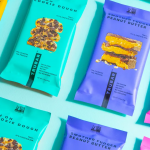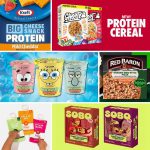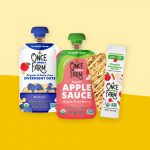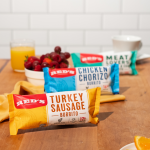The Checkout: Tyson Requires Employee Vaccinations; Kroger Partners With Kitchen United
Welcome to The Checkout: an express lane for the weekly news you need to know, always 10 items or less.
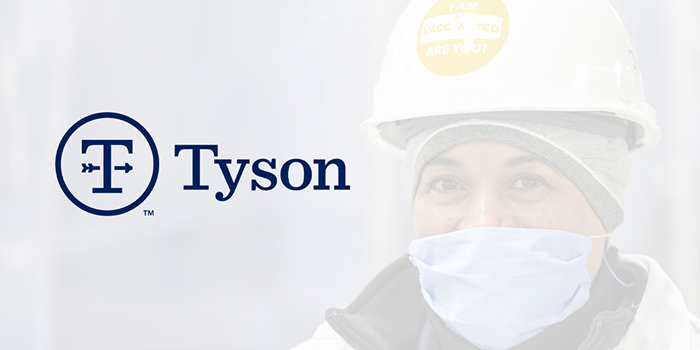
Tyson Foods Requires COVID-19 Vaccination For U.S. Employees
This week Tyson Foods announced it will require all U.S-based team members to receive the COVID-19 vaccine by November, making the meat producer the largest food company to require vaccinations for its entire workforce. Currently, Tyson reported that half of its U.S. employees have already been vaccinated and “infection rates remain low” among its workforce.
The company also announced it will provide a $200 bonus to all vaccinated frontline employees, an expansion of its current policy that compensates employees up to four hours of pay if they are vaccinated outside of work hours.
“Getting vaccinated against COVID-19 is the single most effective thing we can do to protect our team members, their families and their communities,” Dr. Claudia Coplein, Chief Medical Officer of Tyson Foods said in a press release. “With rapidly rising COVID-19 case counts of contagious, dangerous variants leading to increasing rates of severe illness and hospitalization among the U.S. unvaccinated population, this is the right time to take the next step to ensure a fully vaccinated workforce.”
Tyson Foods has hosted over 100 vaccination events since February with over 56,000 employees vaccinated to-date through these clinics. The company reported they have spent over $700 million on COVID-19 related expenses including purchasing PPE and outfitting its facilities with proper protective barriers and on-site testing stations in addition to hosting vaccination clinics and hiring personnel to manage the company’s COVID-19 procedures.
This announcement comes after dozens of corporations across the country — including Walmart and Walgreens — announced similar vaccination requirements for employees. During the pandemic Tyson received criticism after approximately 10,000 employees tested positive during the first three months of the lockdowns in the United States.
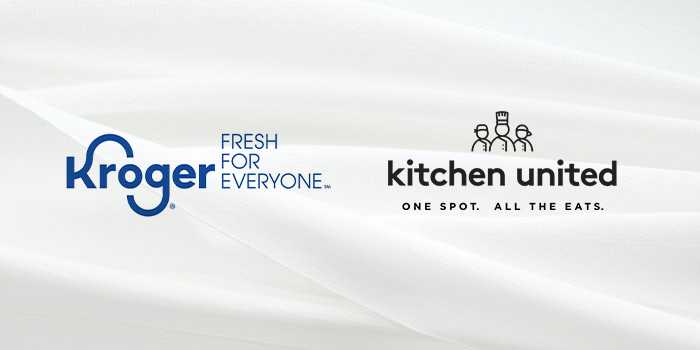
Kroger Partners With Kitchen United
This week grocery retailer Kroger announced it has partnered with ghost kitchen platform Kitchen United to bring restaurant delivery services into stores. Kroger’s Los Angeles Ralph’s will be the first location to bring the offering online, with additional stores adding the service by the end of the year.
“Our customers’ appetite for fresh, on-demand meals continues to accelerate, and we remain focused on offering new and innovative products that provide anything, anytime, anywhere,” Dan De La Rosa, Kroger’s group VP of fresh merchandising said in a press release.
Rather than produce items on site, Off-premise ghost kitchens will provide participating Kroger stores with select on-demand meals from up to six restaurants. Customers will place their orders either online through Kitchen United’s website or app, or at an in-store kiosk. Once ready, orders can either be delivered to the store itself for pickup delivered directly to homes as part of larger shopping orders.
“We are proud to have launched a number of successful ghost kitchen centers across the country,” Atul Sood, Chief Business Officer of Kitchen United said in a press release. “Now we are applying our experience and taking steps to expand in non-traditional ghost kitchen formats such as retail shopping centers and food halls… alongside our efforts with Kroger.”
The launch offers Kroger a new way to give its shoppers convenient, on-demand meals and also compete with restaurant delivery platforms such as Uber Eats or GrubHub, which have increasingly also offered shoppers groceries in addition to restaurant delivery. While hot bars and salad bars once provided customers with other ready-made-meal options, they were largely shuttered during the pandemic due to sanitation concerns.

Danone and Brightseed Expand Their Partnership
A year after partnering with bioscience company Brightseed to expand its plant-based expertise, Danone announced this week it will expand the partnership to develop a deeper understanding of the health impact of common crops. The partnership comes after Brightseed’s artificial intelligence program Forager uncovered 10 previously unknown bioactives in various plants supporting seven different areas of health.
“Forager is providing unprecedented visibility into the transformative power plants can have on human health,” said Taisa Hansen, SVP of Research and Innovation at Danone Nutricia Research, in a press release. “Ultimately our goal is to make this information non-exclusive so that humanity can benefit from this collective wisdom and move faster towards a healthier, regenerative food future.”
According to a press release, Danone and Brightseed’s goal is to uncover and map out the functional benefits of more plants that Danone can then incorporate into functional products. Currently, less than 1% of plant bioactives have been scientifically documented while only about 12 crops make up three quarters of the food system.
At its current rate of discovery, Brightseed’s technology is positioned to identify about 10 million bioactive compounds by 2025 across the plant kingdom. Once these natural compounds are identified, Danone plans to both improve the health benefits of existing lines while also launching new products in the food, health and wellness segments.
“As the world’s largest B Corp, we believe in this power to change our food system, and we believe this power is within each of us,” Takoua Debeche, SVP of Research & Innovation at Danone North America, told NOSH last year. “We strongly believe in open innovation, directly through partnerships to help us improve the taste of our products and also unlock more benefits from foods and from plants.”
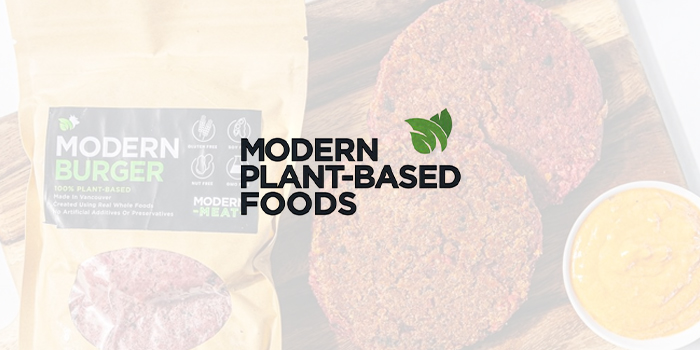
Modern Meat Launches Plant-Based Line in the U.S.
Canadian food company Modern Plant-Based Foods Inc. launched its first line of products in the United States this week through a co-packing agreement with California’s Real Vision Foods. Modern’s Crab-less Cakes and Remoulade debuted at select retailers on the West Coast.
Real Vision has the capacity to produce up to a wholesale value of $25 million worth of Modern Meat products a year through its manufacturing facility, according to a press release.
“The California market has been of interest to Modern Meat for some time. The demographics reflect that of our target consumer, specifically those who are seeking a healthier and more sustainable lifestyle,” Tara Haddad, founder and CEO of Modern Plant-Based Foods, said in a press release.
Modern Meat currently produces and distributes plant-based lines of meat and dairy-free alternatives, soups and vegan snacks in retailers and restaurants across Canada. The company plans to bring a variety of these items to store shelves in the U.S



